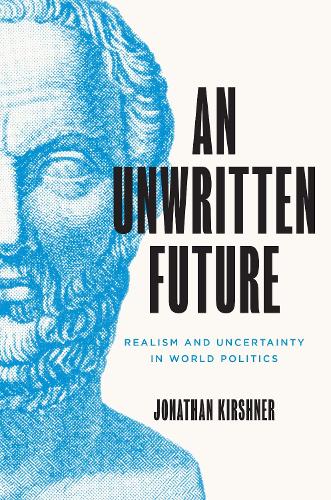
An Unwritten Future: Realism and Uncertainty in World Politics
(Paperback)
Available Formats
Publishing Details
An Unwritten Future: Realism and Uncertainty in World Politics
By (Author) Jonathan Kirshner
Princeton University Press
Princeton University Press
27th November 2024
United States
Classifications
General
Non Fiction
Geopolitics
Political science and theory
327.101
Physical Properties
Paperback
336
Width 156mm, Height 235mm
Description
An argument for the classical realist approach to world politics
An Unwritten Future offers a fresh reassessment of classical realism, an enduring approach to understanding crucial events in the international political arena. Jonathan Kirshner identifies the fundamental flaws of classical realisms would-be successors and shows how this older, more nuanced and sophisticated method for studying world politics better explains the formative events of the past. Kirshner also reveals how this approach is ideally equipped to comprehend the vital questions of the presentsuch as the implications of Chinas rise, the ways that social and economic change alter the balance of power and the nature of international conflict, and the consequences of the end of the US-led postwar order for the future of world politics.
Laying out realisms core principles, Kirshner discusses the contributions of the perspectives key thinkers, including Thucydides, Hans Morgenthau, and Raymond Aron, among others. He illustrates how a classical realist approach gives new insights into major upheavals of the twentieth century, such as Britains appeasement of Nazi Germany and Americas ruinous involvement in Vietnam. Kirshner also addresses realisms limits and explores contemporary issues, including the ascent of great power challengers, the political implications of globalization, and the diffusion of power in modern world politics.
A reexamination of the realist tradition, with a renewed emphasis on the crucial roles played by uncertainty, contingency, and contestation, An Unwritten Future demonstrates how a once-popular school of thought provides invaluable insights into pressing real-world problems.
Reviews
"Honorable Mention for the Jervis Schroeder Prize, American Political Science Association International History & Politics Section"
"With chapters on the rise of China, how to meld political economy questions into classical realist theories, and even exploring the potential weaknesses and shortfalls of classical realism, An Unwritten Future thoughtfully assesses the question of what it would mean in practice to reinsert classical realist perspectives into ongoing policy debates."---Emma Ashford, Foreign Affairs
"An enlightening reevaluation of an enduring theory that might continue to yield important insights about world politics today." * Choice *
"Erudite and contentious. It is the kind of work that could only be written by a senior scholar building upon and summing up a long, distinguished careers work in the field. . . . Its views and astonishing breadth of knowledge are on display not only in its wide-ranging historical and exegetical text but also in its extensive footnotes with their numerous analytic observations. . . . all will be dazzled by the range of the learned discussion."---Arthur Stein, Perspectives on Politics
"Kirshner's commanding plea for the resurgence of classical realism could not be more timely." * Political Science Quarterly *
"Kirshner's timely, insightful, and thought-provoking book proposes a much-needed renewal of classical realism. This important contribution highlights the need for policy-makers and scholars to appreciate the theory's insights more fully."---Charlotte Hulme, International Affairs
"An important new book. . . . Kirshner aims to rehabilitate classical realism in International Relations."---Sumantra Maitra, Law & Liberty
"A compelling case for reviving classical realism as a guide to understanding contemporary problems."---Joshua Rovner, Englesberg Ideas
"Kirshner reclaims the timeless value that Classical Realism offers for the study of international relations."---Christoph Rohde, Zeitschrift fuer Aussen & Sicherheitspolitik
Author Bio
Jonathan Kirshner is professor of political science and international studies at Boston College, and the Stephen and Barbara Friedman Professor of International Political Economy Emeritus at Cornell University. His many books include Currency and Coercion (Princeton) and Hollywoods Last Golden Age.
